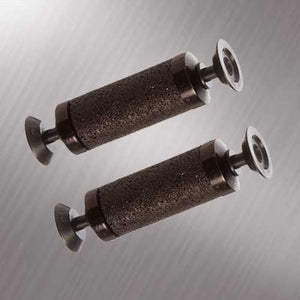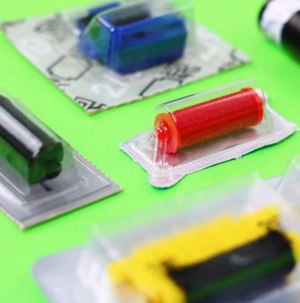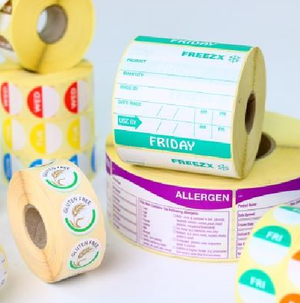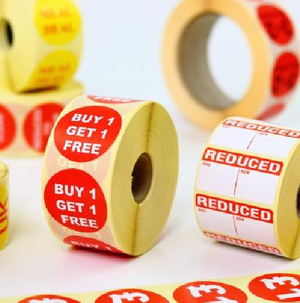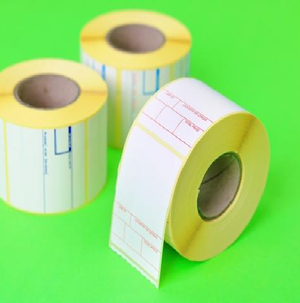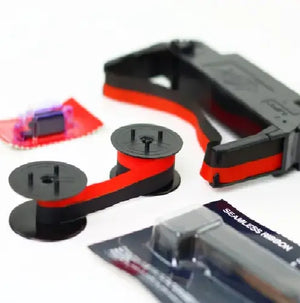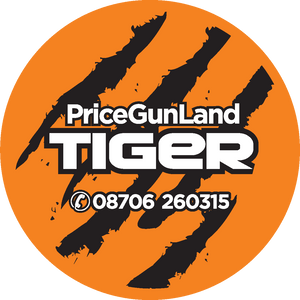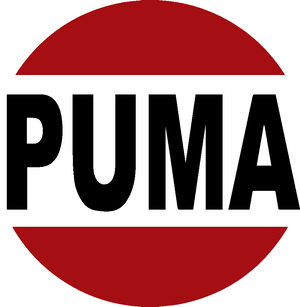
Understanding Weigh Price Labels: Why Scale Labels Are Essential for Retail Efficiency
In the fast-paced world of retail, precision and trust are everything. Whether you're running a busy butcher’s shop, a neighbourhood deli, or a supermarket, one small label can make a big difference. That’s where weigh price labels come in.
Weigh price labels are essential for any business selling products by weight. They ensure accurate pricing, speed up service, and help retailers meet UK labelling laws. From butchers to supermarkets, these labels improve efficiency and build trust with customers — making them a vital tool in modern retail.
These labels don’t just show a number — they provide transparency, accuracy, and compliance. In this blog, we’ll explore exactly what weigh price labels are, how they work with retail labelling systems, and why they're essential for any business selling products by weight.
What Are Weigh Price Labels?
Weigh price labels (also known as scale labels or weight and price stickers) are specially designed labels used in conjunction with digital scales. They automatically print pricing and product details based on an item’s weight and the price per kilogram or gram.
They are commonly used in:
-
Supermarkets
-
Butchers
-
Delis
-
Greengrocers
-
Fishmongers
-
Market stalls
-
Food packaging and distribution businesses
These labels usually contain:
-
Item name
-
Weight
-
Price per unit of weight
-
Total price
-
Date packed / use by date
-
Barcodes (for scanning at checkout)
-
Nutritional or allergen info (for food labelling compliance)
Many weigh price labels come in thermal paper format, allowing for clean, efficient printing via direct thermal printers — ideal for high-speed retail environments.
How Weigh Price Labels Work with Retail Scales
Weigh price labels are part of a larger retail labelling system, integrated directly into digital price computing scales. These systems do all the heavy lifting (no pun intended).
Here’s how it works:
-
The product is placed on a scale.
-
The scale calculates the item’s weight.
-
Based on the price per kg (already programmed in), it calculates the total price.
-
A label printer then generates a custom label with all the information pre-filled.
This entire process takes just seconds — speeding up queues and reducing the chance of human error.
Many modern scale printers allow retailers to customise these labels to include logos, promotional messages, or compliance details like batch numbers and allergens.
Why Are Weigh Price Labels Essential for Retailers?
1. Accuracy
Weigh price labels eliminate the guesswork. The label tells the customer exactly how much an item weighs and what it costs. This precision is especially important when pricing products like:
-
Loose fruit and vegetables
-
Cheese and cured meats
-
Fresh meat or fish
-
Pick and mix sweets
With each sale, you're delivering accurate pricing to your customers and protecting your margins.
2. Efficiency
Speed is crucial in a retail setting. Whether you’re operating a busy counter or pre-packing items for display, scale labels save time by automating the pricing and labelling process.
They also reduce the need for manual data entry, cutting down on training time and errors.
3. Compliance with UK Labelling Laws
In the UK, food labelling is regulated by the Food Standards Agency and other governing bodies. Products sold by weight must include key information — especially if they are pre-packaged.
Weigh price labels help ensure:
-
Nutritional values and allergens are clearly shown
-
Items include use-by or best-before dates
-
Barcodes are readable and accurate
Failure to meet labelling laws can result in fines, product recalls, or loss of consumer trust.
4. Transparency for Customers
Customers want to know what they’re paying for. With a weigh price label, they get:
-
Clear breakdown of pricing
-
Visible weights and units
-
Easy-to-read expiry information
This clarity builds consumer trust — especially when selling high-value goods like premium cuts of meat or deli items.
Key Industries That Rely on Weigh Price Labels
While you’ll find weigh price labels in nearly every supermarket, they’re essential across many industries, including:
-
Butchers: Labelling individual cuts for counter display and takeaway
-
Delis & Cheese Shops: Pre-packing assorted weights of similar products
-
Bakeries: Pricing bread, rolls, and pastries by weight
-
Fishmongers: Packaging fillets and shellfish accurately
-
Farm Shops & Greengrocers: Labelling seasonal produce
-
Food Wholesalers & Packers: Labelling bulk and distribution goods
These industries depend on scale labels for speed, clarity, and regulation compliance.
Common Mistakes to Avoid with Weigh Price Labels
If you’re new to using weigh price labels — or even if you’ve used them for years — there are a few pitfalls worth avoiding:
1. Using Low-Quality Label Rolls
Cheaper label rolls may smudge, peel, or jam your printer. Always use retail-grade labels suitable for your printer model.
2. Incorrect Scale Calibration
If your scale isn’t properly calibrated, every label you print could be inaccurate — opening you up to fines or complaints.
3. Outdated Pricing Systems
Failing to update your prices in the system can lead to incorrect totals being printed — especially during promotions or inflation changes.
4. Poor Label Storage
Labels stored in humid or overly warm environments can degrade. Keep your label rolls in a dry, cool location to maintain their quality.
How to Choose the Right Labels for Your Scales
When shopping for weigh price labels, not all products are created equal. Consider these factors:
1. Compatibility
Make sure your labels are compatible with your scale’s printer type — whether it’s a direct thermal or thermal transfer model.
2. Size and Format
Choose the right label dimensions based on:
-
Print area required for product info
-
Space available on your packaging
-
Barcode inclusion
3. Adhesive Strength
Retail environments vary. Do you need permanent adhesive for long-term labels, or removable labels for short-term packaging?
4. Branding or Custom Design
Many businesses now opt for custom printed labels that include their logo, tagline, or unique colour scheme to create a consistent brand experience.
How Price Gun Land Can Help
At Price Gun Land, we understand how critical the right label is to your business. That’s why we stock a wide range of weigh price label rolls, compatible with top brands like Avery Berkel, Digi, CAS, Bizerba, and more.
Our products offer:
-
Thermal and non-thermal options
-
Various sizes and adhesives
-
Bulk discounts for frequent use
-
Next-day delivery across the UK
Need help choosing the right product? Our expert team can help you find a label that fits your exact system and workflow.
Don’t Overlook the Power of the Right Label
Weigh price labels may seem small, but they play a big role in your retail operation. From ensuring pricing accuracy and legal compliance to speeding up sales and improving customer satisfaction, these labels are a vital component of modern retail.
Whether you’re just getting started or looking to upgrade your existing label stock, Price Gun Land is here to help you find the right scale labels for your business.


